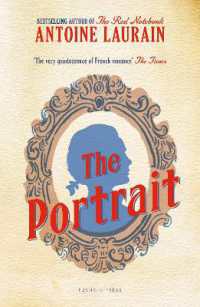Full Description
In this collection of case studies and stories from the field, South African scholars come together to trade stories on how to decolonise the university
Shortly after the giant bronze statue of Cecil John Rhodes came down at the University of Cape Town, student protestors called for the decolonisation of universities. It was a word hardly heard in South Africa's struggle lexicon and many asked: What exactly is decolonisation? This edited volume brings together the best minds in curriculum theory to address this important question. In the process, several critical questions are raised: Is decolonisation simply a slogan for addressing other pressing concerns on campuses and in society? What is the colonial legacy with respect to curriculum and can it be undone? How is the project of curriculum decolonisation similar to or different from the quest for postcolonial knowledge, indigenous knowledge or a critical theory of knowledge? What does decolonisation mean in a digital age where relationships between knowledge and power are shifting?
The book combines strong conceptual analyses with novel case studies of attempts to 'do decolonisation' in settings as diverse as South Africa, Uganda, Tanzania and Mauritius. Such a comparative perspective enables reasonable judgements to be made about the prospects for institutional take-up within the curriculum of century-old universities.
Contents
Introduction and Overview: The Politics of Curriculum - Jonathan D Jansen
Part 1: The arguments for decolonisation
Chapter 1 Decolonising universities - Mahmood Mamdani
Chapter 2 The curriculum case for decolonization - Lesley Le Grange
Part 2: The politics and problems of decolonisationisation
Chapter 3 Knowledge, authority and the settled curriculum - Jonathan D Jansen
Chapter 4 The institutional curriculum, pedagogy and the decolonisation of the South African university - Lis Lange
Chapter 5 What counts and who belongs? Current debates in decolonising the curriculum - Ursula Hoadley and Jaamia Galant
Part 3: Doing decolonizationChapter 6 Scaling decolonial consciousness? The reinvention of 'Africa' in a neoliberal university - Jess Auerbach, Mlungisi Dlamini and Janice Ndegwa
Chapter 7 Testing transgressive thinking: The "Learning Through Enlargement" Initiative at UNISA - Crain Soudien
Chapter 8 Between higher and basic education in South Africa: What does decolonisation mean for teacher education? - Yusuf Sayed and Shireen Motala
Part 4: Reimaging colonial inheritances
Chapter 9 Public Art and/as Curricula: Seeking a new role for monuments associated with oppression - Brenda Schmahmann
Chapter 10 The Plastic University: knowledge, disciplines and the decolonial turn - André Keet
Chapter 11 Decolonising knowledge: can ubuntu ethics save us from coloniality? - Piet Naude
Part 5: Decolonisation and the future
Chapter 12 Future knowledges and their implications for the decolonisation project - Achille Mbembe
Afterword: Minds via Curricula? - Grant Parker
References
List of abbreviations
Index







